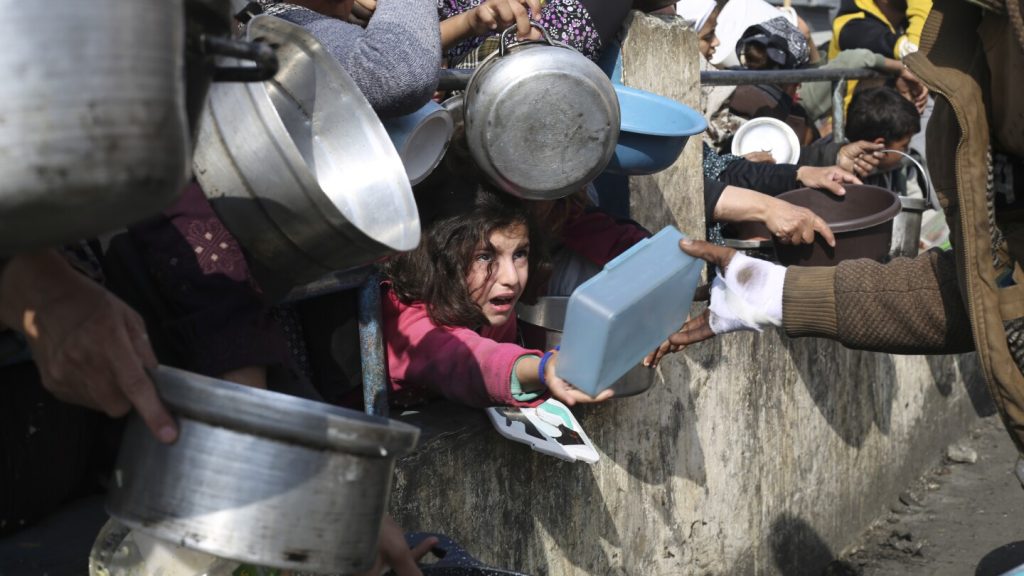The United Nations has suspended food distribution in the southern Gaza city of Rafah due to a lack of supplies and security concerns caused by Israel’s military operation. Hundreds of thousands of people have fled Rafah in a chaotic exodus, seeking shelter in tent camps or crowded areas devastated by previous offensives. The U.N. warned that humanitarian operations across Gaza are nearing collapse, with an estimated 400,000 people still in Rafah after 900,000 fled. The U.S. has expressed concerns about a full-scale ground invasion of Rafah and believes Israel has addressed some of these concerns, but has not greenlit the invasion plan.
Aid delivery to displaced civilians has been hindered by closed and chaotic land crossings, as well as issues with a new floating pier meant to provide an alternative sea route for aid into Gaza. The World Food Program is running out of food for central Gaza, where hundreds of thousands of people are now living. The U.N. has warned of famine-like conditions spreading in Gaza if supplies do not resume entering the territory in massive quantities. Israel has faced international criticism after a request at the International Criminal Court for arrest warrants targeting both Israeli and Hamas leaders, including Prime Minister Benjamin Netanyahu and Defense Minister Yoav Gallant.
The humanitarian crisis in Gaza has deepened following Israel’s seizure of the vital Rafah crossing into Egypt after pushing into the city on May 6. Land crossings have been sporadic due to fighting, with limited aid getting through. The U.N. has long warned that an Israeli assault on Rafah could disrupt aid efforts across Gaza. U.N. spokesman Stephane Dujarric emphasized that people in need must receive aid to survive. Amid escalating fighting in northern Gaza, hospitals have been targeted or surrounded by Israeli troops, forcing evacuations and leaving patients without essential supplies. The ongoing conflict has resulted in significant casualties among civilians and fighters.
Efforts to maintain aid deliveries have been hampered by logistical challenges, with a new pier project intended to accelerate deliveries facing obstacles, including Palestinian crowds removing food from trucks. The U.S. has pledged support for aid efforts, but challenges persist as the crisis in Gaza worsens. International criticism of Israel’s actions in Gaza, including accusations of war crimes, has led to increasing isolation for the country. France, Belgium, and Slovenia have backed the ICC prosecutor’s call for arrest warrants against Israeli and Hamas leaders. Israeli leaders, including Netanyahu, face the prospect of facing these warrants, which could complicate their international travel and raise questions about potential prosecution. Israel continues to have the support of the U.S. and other allies, but the warrants could pose a significant challenge to its leaders.


